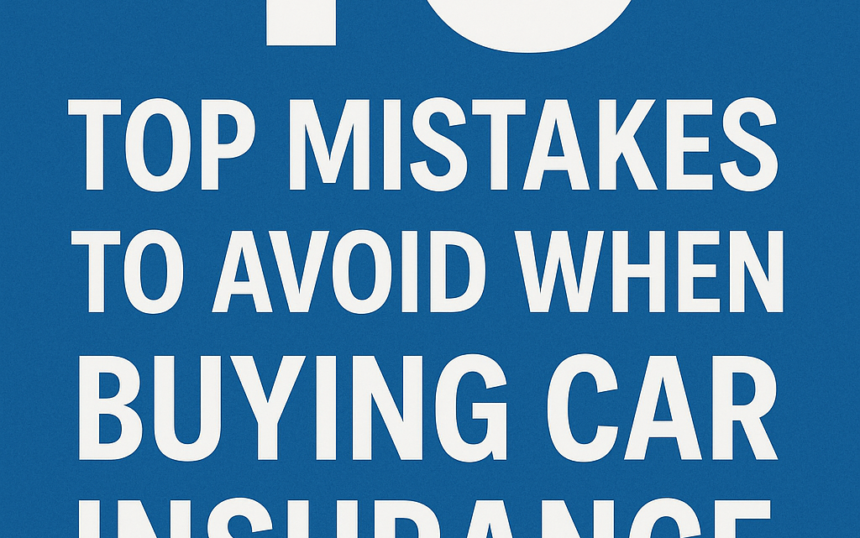
Top 10 Mistakes to Avoid When Buying Car Insurance (Must-Read)
Buying car insurance sounds simple but one small mistake can cost you big time. In this guide, we’re breaking down the Top 10 Mistakes to Avoid When Buying Car Insurance and how you can avoid them like a pro.
From giving the wrong info that gets your claim denied… to skipping discounts, ignoring add-ons, trusting agents blindly, or not reviewing your policy yearly we’ve covered it all. Y
you’ll learn how deductibles really work, why reading the fine print matters, and what to ask before signing anything. If you want to save money and get real protection, then in this article we will give you all the information that you should read in its entirety so that your intention can be clear.
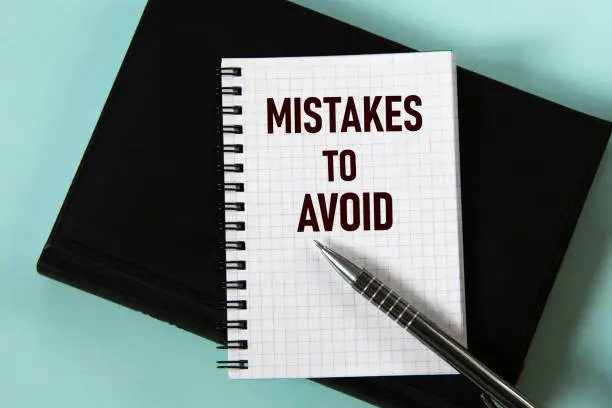
1- Not Knowing What Car Insurance Actually Does
Many people buy car insurance without really knowing what it does. That’s like buying a phone and not knowing if it can call someone.
“Full Coverage” doesn’t mean everything is covered
People often hear the term “full coverage” and think, “Great, I’m fully protected,” But wait full coverage doesn’t actually mean everything is covered.
Full coverage usually includes two main things:
- Collision coverage: This helps pay if your car hits something (like another car or a tree).
- Comprehensive coverage: This helps if something happens to your car that isn’t a crash like theft, fire, or a falling branch.
But even with full coverage, some things might not be included, like:
- Personal belongings inside the car (like your laptop)
- Damage from using your car for work (like Uber or deliveries)
- Mechanical breakdowns
So, before you assume you’re protected from “everything,” ask your insurance company exactly what’s included. It’s better to know now than to be surprised later.
Just getting liability doesn’t protect your own car
Liability insurance is usually the cheapest type of coverage. But here’s the catch: it only pays for other people’s damage not yours.
Let’s say you crash into someone’s car. Liability will help pay for:
- Their car repairs
- Their medical bills (if they’re hurt)
But it won’t pay for:
- Your own car repairs
- Your injuries
- Towing or rental car
So if you only have liability, and your car gets wrecked… you’re on your own. It’s like protecting everyone else but forgetting to protect yourself.
Always think: “If I get in an accident, do I want my insurance to help me too?” If yes, then just liability isn’t enough.

2- Only Choosing the Cheapest Plan
Saving money is a smart move but going with the cheapest car insurance without checking what it includes? That’s risky. Cheap isn’t always good.
Cheap plans might skip important stuff
Low-price plans often leave out things you might really need. For example:
- No roadside help if your car breaks down
- No rental car if your car is in the shop
- Low limits that might not fully pay after a serious crash
It’s like buying the cheapest umbrella it might break in the first big storm.
Sometimes, that cheap plan only looks cheap until you actually need help. And then you realize you’re paying a lot more out of pocket.
It can cost more in the long run
Here’s the twist: the cheapest plan might cost more later. Imagine:
- You get into an accident
- Your plan doesn’t cover your repairs
- You pay thousands from your own pocket
Or maybe:
- Your limits are so low that the other driver sues you
- You end up in court, paying legal fees and damages
So, instead of thinking “What’s the cheapest?” ask:
- “What do I actually need?”
- “What can protect me in the real world?”
Cheap might save you $10 a month… but lose you $10,000 later.

3- Not Comparing Plans from Different Companies
Would you buy the first phone you see without checking other brands? Probably not. So why do that with car insurance?
Every company gives different prices and benefits
Even if you give the same info (your age, car, driving history), one company might say:
- “Your monthly rate is $150”
While another might say:
- “We’ll give you the same coverage for $110!”
That’s $480 saved every year just for checking around!
Also, companies offer different extras, like:
- Accident forgiveness
- New car replacement
- Free roadside assistance
So, just because two plans seem “the same,” doesn’t mean they actually are.
Comparing is super easy with online tools
You don’t have to call 10 companies one by one (who has time for that?). There are websites that do the hard work for you.
You can:
- Enter your info once
- See quotes from 5–10 companies instantly
- Compare coverages side-by-side
4-Giving Wrong or Incomplete Info
Imagine going to the doctor and not telling them about a previous health problem would they be able to treat you properly? Probably not. Car insurance works the same way. If you give wrong or half information about your car or driving history, your insurance company might deny your claim when you need it most.
Giving false info can get your claim rejected
Some people think hiding an accident or saying they drive less than they really do can lower their premium. It might work at first but the moment you file a claim, the insurance company checks everything.
If they find out you lied?
Claim denied.
No money.
Car damaged.
You’re stuck.
Giving accurate info gets you better rates
The truth is, insurance companies reward honesty. If you:
- Share your correct address
- Give your real driving record
- Tell how much you actually drive
then they can offer you the best deal for your situation. Some even give discounts for low mileage but only if your info is accurate. So don’t lie. You’ll save more and avoid problems later.
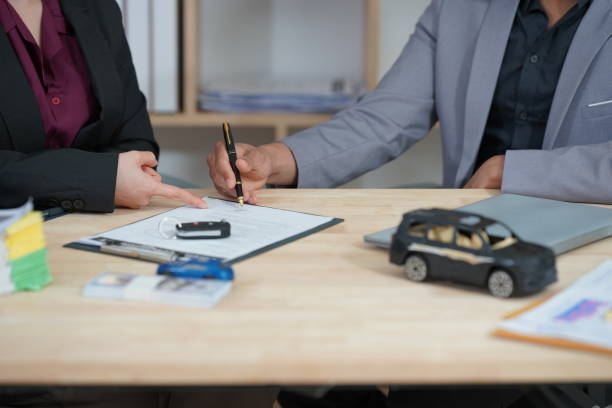
5- Ignoring Deductibles
There’s a hidden part of car insurance many people overlook and that’s the deductible. In simple words, it’s the amount you pay out of pocket when something bad happens. The rest is covered by insurance.
Higher deductible = lower premium, but more risk
Choosing a high deductible means your monthly payments are lower great, But if you get into an accident, you’ll have to pay more from your own pocket.
For example: If your deductible is $1,000 and the repair costs $1,500, you’ll pay $1,000, and insurance pays only $500.
Choose based on your financial situation
If paying $1,000 in an emergency would be tough, then a high deductible isn’t the best idea. Maybe pay a little more each month, but feel secure knowing you won’t struggle later.
Always choose a deductible that fits your budget and comfort level not just what sounds cheapest today.
6- Not Asking for Discounts
Imagine shopping at a store and the cashier says, “You could’ve saved 20%, but you didn’t ask.” Annoying, right? That’s how car insurance works too discounts are available, but you have to ask.
Don’t miss safe driver, student, or bundling discounts
If you’re a good driver (no tickets or accidents), a student with good grades, or bundling home and auto insurance, you likely qualify for discounts.
But most of these aren’t given automatically you need to ask the insurance company.
Some companies don’t mention discounts upfront
Many insurers don’t advertise all their discounts unless you speak up.
Just ask:
“Are there any other discounts I might be eligible for?”
You might find savings they never listed on their site.
Asking takes 1 minute. Saving money lasts all year.
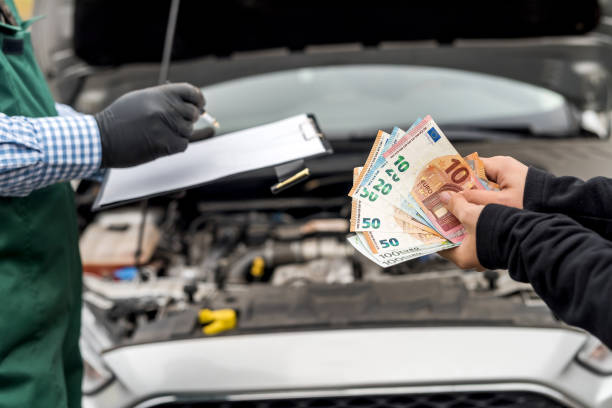
7- Forgetting to Review the Policy Every Year
Car insurance isn’t something you buy once and forget. Just like your life changes every year, your insurance needs to change too.
Your needs change so should your policy
Got married? Bought a new car? Moved to a new city? Started working from home?
All these things affect your insurance.
If you’re using an old policy that no longer fits your current life, you could be:
- Overpaying
- Under-protected
Renewal time is the best time to compare
Every year, when it’s time to renew your policy, don’t just click “Renew” take a moment to compare options.
Maybe another company is offering you a better rate. Maybe your current one has new offers.
Spending 10 minutes reviewing can save hundreds and give you better peace of mind.
8- Overlooking Helpful Add-Ons
Add-ons are small extras you can add to your insurance kind of like getting a screen protector when you buy a new phone. Some people skip them, but they can be life savers in the real world.
Roadside assistance, rental coverage, etc., can help
Imagine you’re stuck on the highway and your car breaks down.
With roadside assistance, one call gets you help.
Or after an accident, your car is in the shop rental coverage keeps your life moving.
These small extras often cost very little but help a lot when things go wrong.
But not every add-on is right for everyone
That said, not everyone needs every add-on.
If you rarely drive far, maybe you don’t need roadside help.
If you already have a separate towing plan (like AAA), you might skip it.
The key is to pick add-ons based on your real life not just what sounds good on paper.
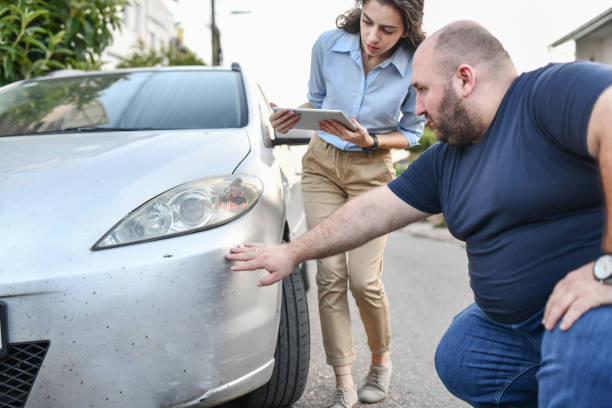
9- Not Understanding the Claim Process
Buying insurance is easy but filing a claim when you actually need it? That’s where people get stuck. If you don’t understand the process ahead of time, it can get messy.
You need to know the claim process before something happens
Many people think that after an accident, they just call and get paid. Nope.
There are:
- Specific steps to follow
- Documents you need to provide
- Deadlines to meet
Knowing all this before anything happens saves you stress later.
Missing documents or delays can ruin your claim
If you forget to send:
- The police report
- Photos of the damage
- Repair estimates
your claim could get delayed or even denied.
Spend just 10 minutes reading the claims section of your policy it could save you big time in the future.
10 – Trusting Everything Your Agent Says
Insurance agents are helpful but always remember: their job is to sell, and your job is to protect yourself.
Your agent wants to sell. You need to understand.
Sometimes, agents recommend plans that give them a better commission not necessarily the best option for you.
That’s why you should ask questions like:
- “What exactly does this cover?”
- “What’s not included?”
- “Is there a cheaper or better option?”
Always do your own research before signing anything
Thanks to the internet, you can now understand car insurance terms in simple English.
Research what:
- Liability means
- Comprehensive covers
- What’s excluded
Use your agent’s advice but double-check it.
It’s your money and your protection. Make sure the final decision is your own.


